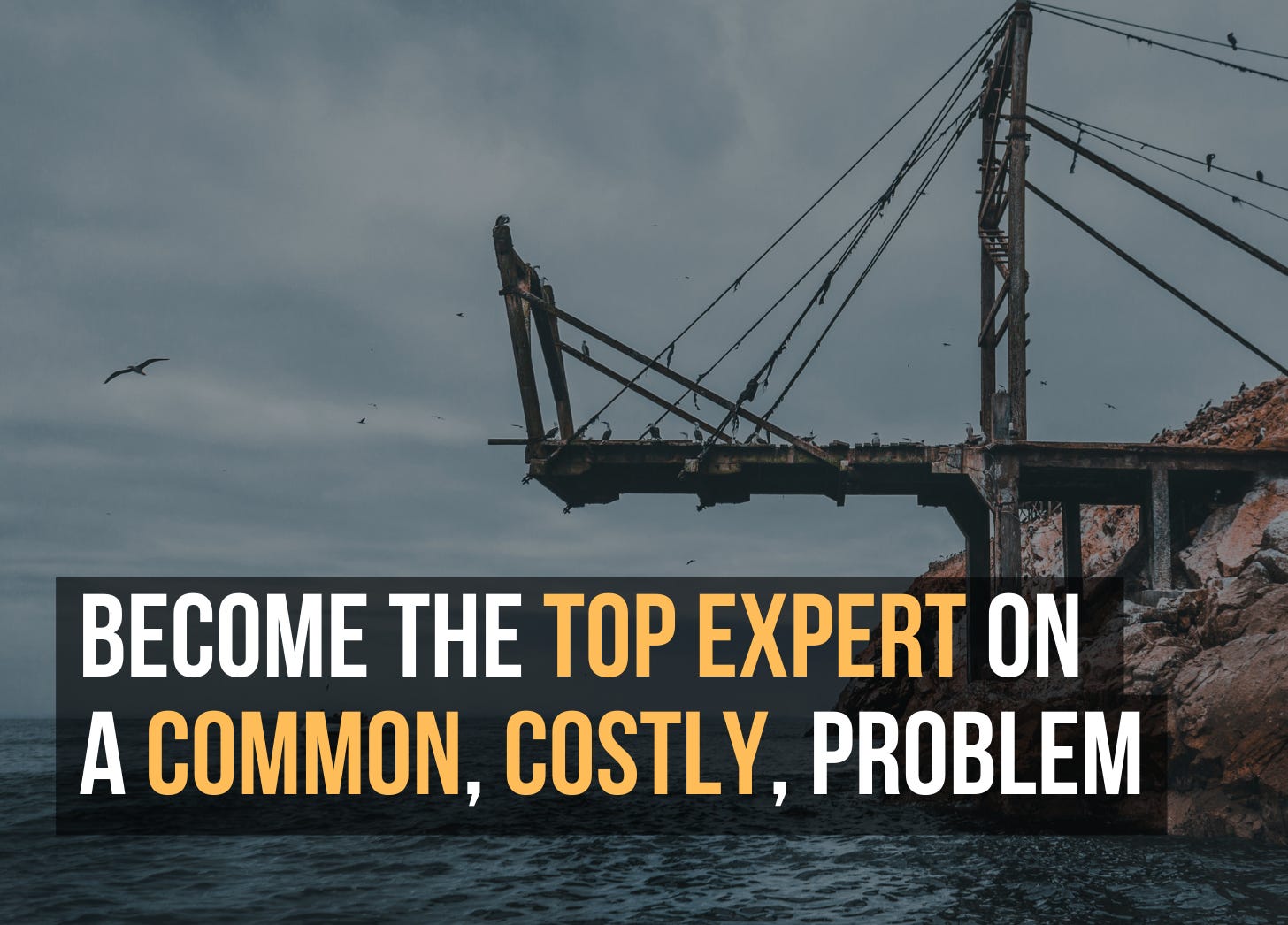Become The Top Expert On A Big, Expensive, Problem
It's hard to make a great living if you focus on small problems
I once struck up a conversation with a freelance travel writer.
He was tired of writing about countries like France, Spain, Turkey, Italy, and Thailand. He kept pitching his editors to more obscure locations in Africa and tiny islands in the Pacific. And he kept being refused.
His editors knew a simple truth. Their readers didn’t want to know more about places they were unlikely to visit. They wanted to know more about the places they already intended to visit.
I think about this story often when I see consultants developing services.
The services often don’t match what a organisations really need.
Fortunately, there is a solution to this.



